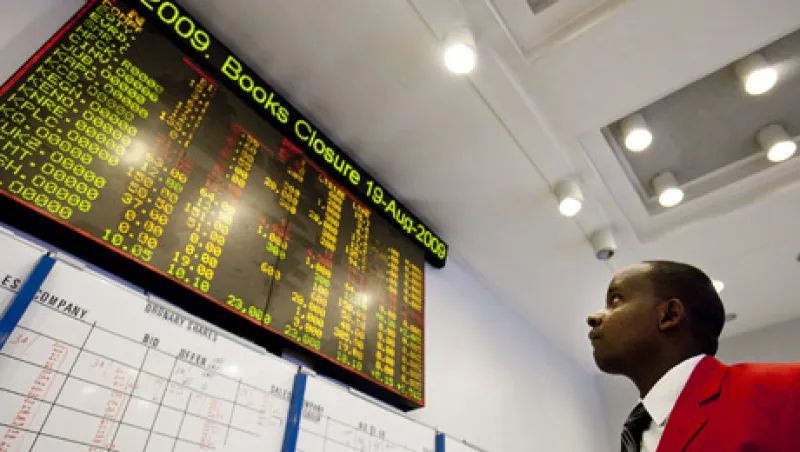
Trading assistant Henry Njologoat looks at a stocks board at the Nairobi Stock Exchange in Nairobi, Kenya, on Thursday, Feb. 25, 2010. Kenya National Bureau of Statistics said it will postpone publishing February's inflation data by at least a day or two to prepare for the release of a revised consumer price index basket. Photographer: Trevor Snapp/Bloomberg *** Local Caption *** Henry Njologoat
Trevor Snapp/Bloomberg

